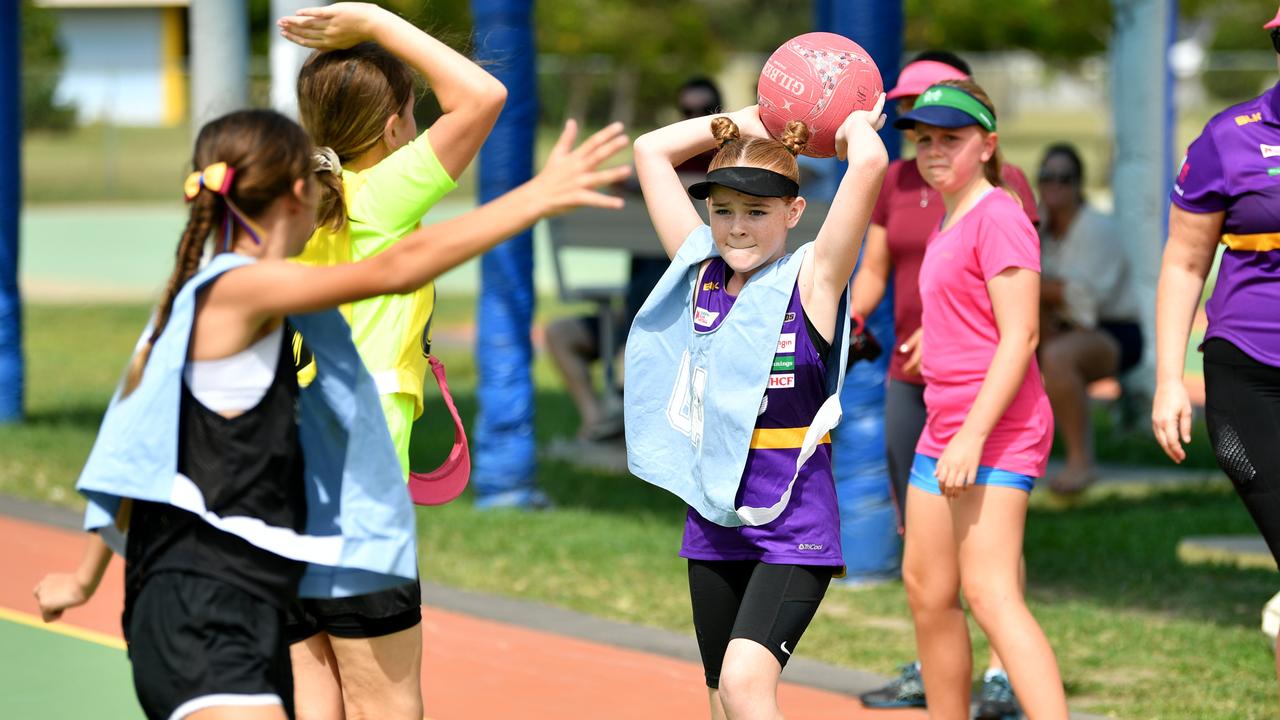Pandemic restrictions created generation of kids who can’t throw or catch: research
A lockdown-forced hiatus from community sport has created a generation of kids with poor motor skills, new research reveals.

Pandemic restrictions have created a lockdown generation of kids who cannot catch or throw, research has found.
More than half of five to nine-year-olds — about 82,000 children — quit community sport, a Victoria University report reveals.
Sports academics Rochelle Eime and Hans Westerbeek, said Covid lockdowns caused more than 231,000 participants to quit the state’s top 10 sports — Australian rules, basketball, cricket, football, gymnastics, hockey, netball, sailing, swimming and tennis.

Writing in Monday’s Herald Sun, the researchers said the two-year loss of community sport and school PE classes represented a big part of children’s lives at a time when they developed motor skills.
“Beyond learning to hop, skip, jump, run, catch and throw, these places teach children important social skills and help them develop broader physical literacy,’’ they said.
“Unfortunately, this large group of young children – call them the ‘sport lockdown generation’ – will struggle to catch up.’’
The research also found the hardest-hit clubs for low participation rates were in country Victoria, which they found surprising as sports clubs were often the social hubs of communities.
Professors Eime and Westerbeek said clubs needed a revolutionary rethink about how community sport was organised to lure members back.
A new post-pandemic model focusing on skills rather than winning was vital, they said, “instead of leaving a legacy of young people who never learnt to catch or throw’’.
It comes as new University of Melbourne research reveals lockdowns themselves had no impact on the mental health of older Victorian teenagers.

The study found Victorian women with partners and dependent children experienced the greatest decline in mental health during Covid 2020 lockdowns when compared with the rest of Australia.
“The adverse mental health effects were largely seen in women with dependent children, who are likely to have borne the burden of the additional workload associated with working from home, as well as caring for and educating children,” the study states.
Teens aged 15-19 also had a decline in mental health, according to the study’s data.
But researchers say this was “not a change attributable to lockdowns” since both teens in Victoria and across Australia, who were relatively free of restrictions, experienced the same decline.
“Although not a focus of the current analysis, (there was) a substantial decline in the mental health of youth and young adults in 2020 compared with 2011-19,” the study says.
The University of Melbourne research claims it is the first of its kind to provide “robust” evidence to independently associate lockdowns with mental health outcomes.




